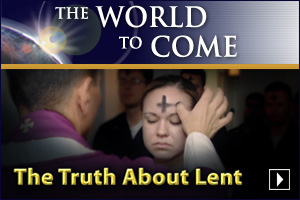Christ was offering a man the opportunity to follow Him in His ministry, and preach the kingdom of God (Luke 9:57-60). But this man responded that he needed to first bury his father who had died. Christ then told him to let the “dead [those not knowing spiritual things] bury their dead.”
In no way was Christ telling this man not to attend his father’s funeral. Funerals are usually short ceremonies, taking only a little time. Christ instructs that Christians are to respect and show compassion to others. Luke 7:11-15 records Christ’s actions as He encountered a funeral procession.
Christ responded in the manner that He did because He realized this man was making excuses not to follow Him. This man’s father was possibly elderly and near death. Using his father’s condition as an excuse, this young man was avoiding the responsibility being offered to him.
The man’s priorities were not based on following God, or on the spiritual (Matt. 6:33). If they were, he could have respectfully found a way to have his father cared for—while serving God. For this reason, Christ told him to let the “dead”—those not being called (Eph. 2:1)—continue living their life, unaware of spiritual things.
Once called, a Christian should not allow physical matters to distract or interrupt him from serving God (John 6:44, 65). This same point is illustrated in the parable of the sower (Mark 4:14-20).
While newspapers, magazines and other news media report what happened, The Real Truth analyzes and explains the root cause of why events happen—why humanity is at a loss to solve today’s problems.


















